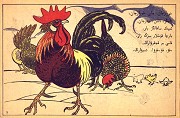

|
Thu24 Jul11:25am(20 mins)
|
Where:
421 - Nunn Hall
Presenter:
|

In 1920, Tashkent was a crossroads of revolutions. The Russian revolution had energized and radicalized many Muslims in the Russian empire, while the chaotic end of the Great War had thrown open borders that had been largely stable since the 1880s. Tashkent was the scene of feverish activity among local Muslims who had joined the new regime and hoped to mould it to their own ends. Overthrowing empire, locally and worldwide, shaped their political aspirations and the political and intellectual life of the city was abuzz with ideas of a global anticolonial struggle. They were joined by numerous other groups, each discontented with the status quo in their societies: Ottoman prisoners of war seeking to return to Anatolia; emissaries of the anti-Entente resistance in Anatolia; Iranians seeking solutions to their country’s fragmentation; and, finally, hundreds of Indians, the vast majority of them Muslim, seeking to cast off British rule in India.